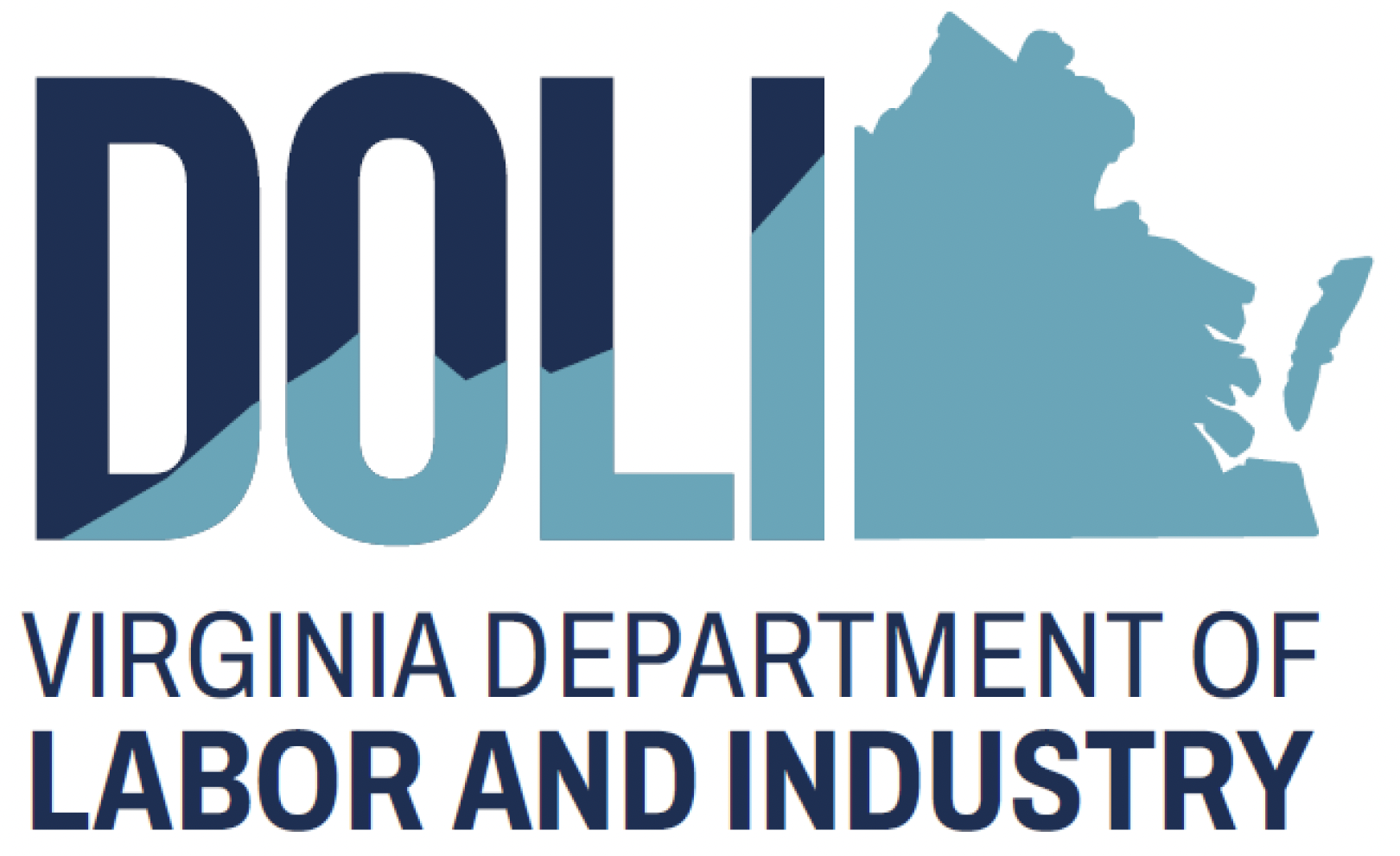-
Virginia Department of Labor and Industry Announces James S. Frederick as Commissioner
Richmond, VA (January 2026) — The Virginia Department of Labor and Industry (DOLI) is proud to announce that James (Jim) S. Frederick has been appointed Commissioner of the agency by Governor Abigail Spanberger. As Commissioner, Frederick
-
Notice of the Average Weekly Wage for 2026
Pursuant to Va. Code § 40.1-28.7:8, the term “low-wage employee” as applied to covenants not to compete has been calculated by the Virginia Department of Workforce Development and Advancement to
-
DOLI Enhances Public Engagement with New Brand Identity and Website
The Virginia Department of Labor and Industry (DOLI) is proud to announce the launch of a new brand identity and website (doli.virginia.gov) to enhance the customer experience, marking a significant
-
September is National Suicide Prevention Awareness Month
September is National Suicide Prevention Awareness Month. This month can provide an opportunity to discuss the ongoing mental health crisis, the alarming increase in work-related suicides, and what you can
-
Local Government Union Requirements and Employee Protections
Effective July 30, 2025, 16VAC15-70, Local Government Union Requirements and Employee Protections, has been adopted as a final regulation. The regulation has been adopted in response to the 2020 legislative
-
Safety and Health Codes Board Meeting – September 17, 2025
The Safety and Health Codes Board will hold a public meeting on September 17, 2025 at 10:30 AM at Libbie Mill Public Library (2100 Libbie Lake E Street, Richmond, VA
-
Safe + Sound Week, August 11 – August 17, 2025
OSHA’s Safe + Sound Week is the perfect opportunity for employers around the country to develop and implement a robust safety and health plan for their workplace. The campaign is
-
Virginia Minimum Wage Rate Increasing Effective January 1, 2026
RICHMOND – The Virginia Department of Labor and Industry (DOLI) announces that the Virginia minimum wage rate will increase to $12.77 effective January 1, 2026, in accordance with Virginia law.
-
Virginia Minimum Wage Rate Increasing Effective January 1, 2026
RICHMOND – The Virginia Department of Labor and Industry (DOLI) announces that the Virginia minimum wage rate will increase to $12.77 effective January 1, 2026, in accordance with Virginia law.
-
Protecting Workers from the Effects of Heat
Exposure to heat is a serious occupational hazard, affecting both indoor and outdoor workers. Without proper training and protective measures, it can lead to severe—and sometimes fatal—illnesses. The good news:
News
Was this article helpful?
YesNo

 ONLINE PORTAL
ONLINE PORTAL
 LOCATIONS
LOCATIONS
 EVENTS
EVENTS
 ABOUT
ABOUT